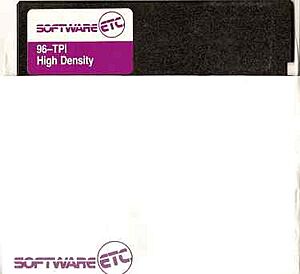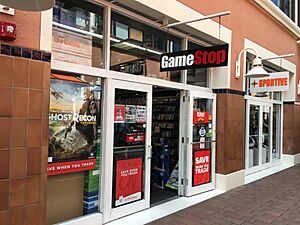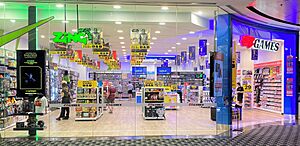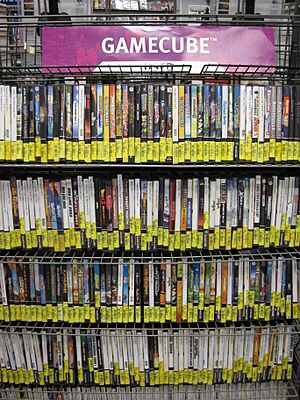GameStop facts for kids
Logo since 2000
|
|
|
Formerly
|
Babbage's (1980–1999) |
|---|---|
| Public | |
| Traded as |
|
| Industry | Retail |
| Predecessors |
|
| Founded | August 20, 1980 |
| Founders |
|
| Headquarters |
,
U.S.
|
|
Number of locations
|
3,203 (Feb 2025) |
|
Area served
|
|
|
Key people
|
Ryan Cohen (chairman and CEO) |
| Products |
|
| Revenue | |
|
Operating income
|
|
| Total assets | |
| Total equity | |
|
Number of employees
|
8,000 full-time; 13,000–18,000 part-time (Feb 2024) |
| Parent | NeoStar Retail Group (1994–1996) Babbage's Etc. (1996–1999) Barnes & Noble (1999–2004) |
| Subsidiaries |
|
GameStop Corp. is a big American store that sells video games, electronics, and cool gaming stuff. Its main office is in Grapevine, Texas. It's known as the largest video game store around the world.
As of February 2025, GameStop had 3,203 stores. This included 2,325 stores in the United States, 193 in Canada, 374 in Australia, and 311 in Europe. The company uses different names for its stores, like GameStop, EB Games, EB Games Australia, Micromania-Zing, ThinkGeek, and Zing Pop Culture.
The company started in Dallas in 1984 as Babbage's. It changed its name to GameStop in 1999. In recent years, GameStop faced challenges because more people started buying video games online instead of from physical stores. In 2021, something big happened: a lot of everyday investors on Reddit bought GameStop's stock, causing its price to jump from about $17 to over $500! This made GameStop famous in the news.
In January 2025, GameStop closed over 400 stores because sales were dropping. This was the most stores they had ever closed in one month. The company also announced in March 2025 that it planned to use some of its money to buy Bitcoin.
Contents
GameStop's Journey: How It Started
Early Days: Babbage's (1980–1994)
GameStop's story began with a store called Babbage's. It was started in Dallas, Texas, on August 20, 1980. The founders were James McCurry and Gary M. Kusin. They named the company after Charles Babbage, who is known as a computer pioneer.
The first Babbage's store opened in Dallas. At first, the company focused on selling software. But soon, they started selling video games for the popular Atari 2600 system. By 1987, they were also selling Nintendo games. Babbage's became a public company in 1988, meaning people could buy shares of its stock. By 1991, video games made up two-thirds of all Babbage's sales!
Changes and Mergers (1994–1999)
In 1994, Babbage's joined with another software store called Software Etc. They formed a new company called NeoStar Retail Group. Both Babbage's and Software Etc. continued to operate as separate parts of NeoStar.
Later, in 1996, NeoStar had financial problems and had to file for bankruptcy. This meant they needed help to pay their debts. A businessman named Leonard Riggio, who was also involved with Software Etc. and Barnes & Noble, bought NeoStar's assets for $58.5 million. He kept many of the stores open.
After this, Riggio created a new company called Babbage's Etc. In 1999, Babbage's Etc. launched its new brand: GameStop. They opened 30 GameStop stores and also started gamestop.com, a website where people could buy video games online.
Becoming Part of Barnes & Noble (1999–2004)
In October 1999, Barnes & Noble Booksellers bought Babbage's Etc. for $215 million. A few months later, in May 2000, Barnes & Noble also bought Funco, a company that owned a video game store called FuncoLand. With Funco, Barnes & Noble also got Game Informer, a video game magazine.
Funco was then renamed GameStop, Inc. in December 2000. In February 2002, GameStop became a public company again. Barnes & Noble still owned most of GameStop until October 2004. At that point, Barnes & Noble gave its shares of GameStop to its own shareholders, making GameStop an independent company.
Growing Bigger: GameStop's Expansion (2004–2016)
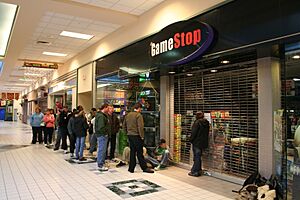

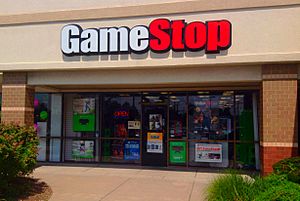
GameStop grew a lot during these years by buying other companies and expanding its brands.
Buying Other Companies
- In 2005, GameStop bought EB Games for $1.44 billion. This made GameStop much bigger, adding stores in Australia, Canada, Europe, and New Zealand. GameStop then had over 4,250 stores worldwide.
- In 2007, GameStop bought Rhino Video Games, which had 70 stores in the southeastern United States.
- In 2008, GameStop bought 49 stores from Free Record Shop in Norway.
- Also in 2008, GameStop bought Micromania, a French video game store, for $700 million. This gave GameStop 332 stores in France.
- GameStop also bought online gaming companies like Jolt Online Gaming (2009) and Kongregate (2010). Kongregate was later sold in 2017.
- In 2011, GameStop acquired Spawn Labs and Impulse. Impulse was an online platform for PC games. GameStop later closed both of these in 2014.
- In 2012, GameStop bought BuyMyTronics, an online marketplace for electronics.
- GameStop also bought parts of Simply Mac, an Apple reseller, in 2012 and 2013. They later sold Simply Mac in 2019.
- In 2013, GameStop bought Spring Mobile, a store that sold AT&T wireless services.
- In 2015, GameStop bought 163 RadioShack stores and Geeknet.
- In 2016, GameStop acquired 507 more AT&T stores to try and sell more than just video games.
New Brands and Ideas
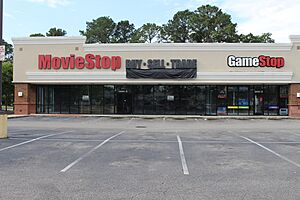
GameStop tried out new ideas:
- They started MovieStop in 2004, which sold new and used movies. These stores were often next to GameStop locations. MovieStop was later sold and then closed in 2016.
- In 2012, GameStop introduced GameStop Kids, a special store for children's products. These stores only sold games rated "Everyone" and merchandise for popular kids' characters.
- In 2014, GameStop's Australian division started ZiNG Pop Culture. This store sells pop culture items like t-shirts, figures, and bobbleheads. Many EB Games stores in Australia now have a ZiNG Pop Culture section inside them.
Changes in Europe
GameStop started expanding into Europe in 2003 by buying Gamesworld in Ireland. After buying EB Games in 2005, GameStop had nearly 400 stores across Denmark, Finland, Germany, Italy, Norway, Spain, Sweden, and Switzerland. By 2007, they had 636 stores in Europe, including Portugal.
However, GameStop's attempts to grow in the UK were not successful. They closed their last physical stores in the UK in 2012. GameStop also left Portugal in 2012 and Spain in 2014.
In December 2019, GameStop announced it would close its 100 stores in Denmark, Finland, Norway, and Sweden by July 2020. By the end of 2020, GameStop had 954 stores in Europe. In October 2022, GameStop left Austria and Switzerland. In March 2023, GameStop also left Ireland, closing its 35 stores.
In November 2024, GameStop decided to stop all operations in Germany, closing its remaining 69 stores by January 2025. Also in November 2024, GameStop sold its Italian stores to a smaller Italian company called Cidiverte. By summer 2025, the GameStop brand will mostly be gone from Europe, except for Micromania in France. In February 2025, GameStop announced it would sell its French stores too.
Challenges and Changes (2016–2025)
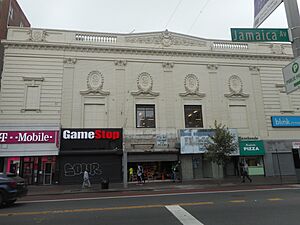
Market Changes
The way people buy games has changed a lot. More and more people download games online from services like Xbox Live, PlayStation Network, and Steam. This meant fewer people were buying physical game discs from stores like GameStop, which led to lower sales.
In 2017, GameStop had a big drop in sales during the holiday season. They announced they would close over 150 stores in 2017. They also tried to grow their non-gaming businesses, like collectibles.
Financial Struggles
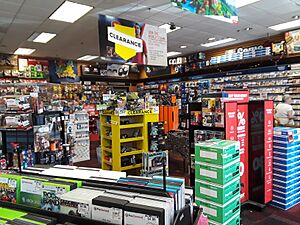
GameStop's stock price fell a lot in 2016 and 2017. In 2018, GameStop had its biggest financial loss ever, losing $673 million. This was a big change from making a profit the year before.
In December 2021, GameStop reported a larger loss than expected. Investors were waiting to see how the company would change to bring gamers back. In March 2024, GameStop announced a small profit of $6.7 million for the 2023 financial year.
Leadership Changes
GameStop had many changes in its leaders during this time. After its CEO, J. Paul Raines, resigned in January 2018 due to health reasons, several people took on the role of CEO for short periods. George Sherman became CEO in March 2019.
In April 2021, George Sherman stepped down as CEO. Ryan Cohen, who founded the company Chewy, became the new chairman in June 2021. Later, in June 2021, Matt Furlong became CEO. However, Furlong was removed in June 2023, and Ryan Cohen took over as CEO, in addition to being chairman. He decided not to take a salary for this role.
Trying to Turn Things Around
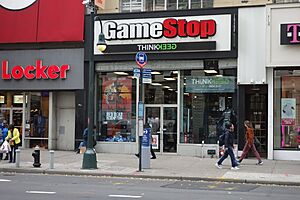
GameStop tried different ways to improve its business:
- In July 2019, GameStop worked with a design company to plan new store layouts. These new stores would focus on competitive gaming and older "retro" games. They also wanted to let customers try games before buying them.
- In August 2019, GameStop laid off over 120 employees, including some from Game Informer magazine. This was part of their "GameStop Reboot initiative" to reorganize the company.
- In October 2020, GameStop announced a deal with Microsoft. This deal would help GameStop use Microsoft's technology in its stores and for its online systems. It also meant GameStop would get a share of the money from digital game purchases for Xbox Series X and S consoles sold by GameStop.
GameStop's Australian division, EB Games Australia, focused on selling more high-profit items like merchandise. They opened more "hybrid" stores that combine EB Games and Zing Pop Culture. This focus on merchandise, like t-shirts and figures, helped the Australian division stay profitable. In fact, the Australian division was the only part of GameStop's global business to make a profit in 2020, 2021, and 2022.
The COVID-19 Pandemic (2020)
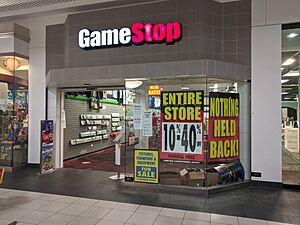
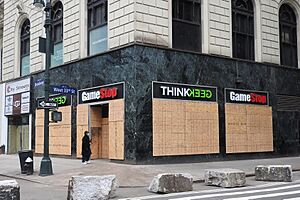
When the COVID-19 pandemic started in March 2020, GameStop had to close most of its 3,500 stores. They continued to sell games online and offer curbside pickup. The CEO and other leaders took pay cuts to help the company. While online sales grew a lot, overall sales dropped, and GameStop reported a big loss.
GameStop faced some criticism for how it handled the pandemic at first. Some employees and people on social media felt the company was putting business ahead of safety. GameStop said it would take steps like stopping in-store events and increasing cleaning. They even started selling some new games a day early to avoid big crowds.
However, some stores were ordered to close by local police for not following stay-at-home rules. By March 22, GameStop closed all its locations, with some offering contact-free curbside pickup.
In Canada, GameStop's subsidiary EB Games also faced criticism for long lines for new games. The mayor of Toronto and the Premier of Ontario spoke out against it. EB Games Canada then closed all its stores on March 21.
Unlike other parts of the company, GameStop's Australian division, EB Games Australia, did not report big losses during the pandemic. In Australia, most retail stores were allowed to stay open with safety limits. This meant Australian stores remained open for most of the pandemic, and their sales actually increased by 30 percent in 2020.
Other News (2021–2025)
In February 2025, GameStop announced it would sell its Canadian operations. In May 2025, a businessman named Stephan Tetrault bought GameStop Canada, and the stores were rebranded back to EB Games Canada.
GameStop also tried to get into the world of NFTs. In May 2021, they announced they were building an NFT platform. A beta version of this platform launched in July 2022. However, in December 2022, GameStop laid off many people working on the NFT platform. In August 2023, they announced they would close their crypto and NFT wallet. Finally, in January 2024, GameStop announced that its NFT marketplace would close completely on February 2, 2024.
How GameStop Works
Atrix Brand
Atrix is GameStop's own brand for gaming accessories. They sell things like headsets, mice, and keyboards under the Atrix name.
Game Informer Magazine
Game Informer was a magazine owned by GameStop. It was mostly sold through subscriptions, which you could buy at GameStop stores. If you were a member of GameStop's PowerUp Rewards Pro program, you got a subscription to the magazine. However, Game Informer was stopped in August 2024.
Trading In Games
GameStop lets customers trade in their old video games, accessories, and tech. In return, customers can get cash or store credit. Selling used games is very profitable for GameStop. Some game makers and publishers have criticized this because they don't get any money from used game sales. GameStop says that most of the store credit from trade-ins is used to buy new games, which helps the whole industry.
GameStop TV
GameStop TV is a special TV network that plays inside GameStop stores. It shows videos about new video games, interviews with game creators, and product demonstrations.
Pre-order Bonuses
GameStop often offers special bonuses if you pre-order a game. These bonuses can be things like extra characters, weapons, or maps in the game. They can also be physical items like soundtracks, artbooks, figures, posters, or T-shirts. These bonuses encourage players to order games before they are released.
GameTrust Games
In January 2016, GameStop started working with game developers to publish games. They created a division called GameTrust Games to help mid-sized developers publish their titles. As of January 2025, GameTrust has published two games.
Company Details
Finances
GameStop Operating Income
Australia Division Operating Income Canada Division Operating Income Europe Division Operating Income
United States Division Operating Income Technology Division Operating Income
| Australia Division | Canada Division | Europe Division | United States Division | Technology Brands | Total | |||||||
|---|---|---|---|---|---|---|---|---|---|---|---|---|
| Year | Net Sales | Operating Income | Net Sales | Operating Income | Net Sales | Operating Income | Net Sales | Operating Income | Net Sales | Operating Income | Net Sales | Operating Income |
| 1999 | - | - | - | - | - | - | $223.7 | $15.3 | - | - | $223.7 | $15.3 |
| 2000 | - | - | - | - | - | - | $756.7 | $5.6 | - | - | $756.7 | $5.6 |
| 2001 | - | - | - | - | - | - | $1,121.1 | $34.1 | - | - | $1,121.1 | $34.1 |
| 2002 | - | - | - | - | - | - | $1,352.8 | $87.1 | - | - | $1,352.8 | $87.1 |
| 2003 | - | - | - | - | $14.8 | -$0.4 | $1,564.0 | $104.8 | - | - | $1,578.8 | $104.4 |
| 2004 | - | - | - | - | $24.6 | -$3.0 | $1,818.2 | $102.1 | - | - | $1,842.8 | $99.1 |
| 2005 | $94.4 | $11.0 | $111.4 | $7.9 | $176.2 | $0.1 | $2,709.8 | $173.7 | - | - | $3,091.8 | $192.7 |
| 2006 | $288.1 | $27.3 | $319.7 | $20.0 | $441.6 | $1.0 | $4,269.5 | $285.4 | - | - | $5,318.9 | $333.7 |
| 2007 | $420.8 | $41.8 | $473.0 | $35.8 | $761.4 | $32.6 | $5,438.8 | $391.2 | - | - | $7,094.0 | $501.4 |
| 2008 | $520.0 | $46.8 | $548.2 | $32.6 | $1,271.0 | $65.6 | $6,466.7 | $530.1 | - | - | $8,805.9 | $675.1 |
| 2009 | $530.2 | $46.0 | $491.4 | $35.0 | $1,781.4 | $67.2 | $6,275.0 | $488.8 | - | - | $9,078.8 | $637.0 |
| 2010 | $565.2 | $41.0 | $502.3 | $22.6 | $1,725.0 | $68.2 | $6,681.2 | $530.8 | - | - | $9,473.7 | $662.6 |
| 2011 | $604.7 | $35.4 | $498.4 | $12.4 | $1,810.4 | $20.2 | $6,637.0 | $501.9 | - | - | $9,550.5 | $569.9 |
| 2012 | $607.3 | -$71.6 | $478.4 | -$74.4 | $1,608.6 | -$397.5 | $6,192.4 | $501.9 | - | - | $8,886.7 | -$41.6 |
| 2013 | $613.7 | $37.5 | $468.8 | $26.6 | $1,733.8 | $44.3 | $6,160.4 | $465.3 | $62.8 | -$0.2 | $9,039.5 | $573.5 |
| 2014 | $644.7 | $38.0 | $476.4 | $28.3 | $1,652.8 | $35.9 | $6,193.5 | $483.2 | $328.6 | $32.9 | $9,296.0 | $618.3 |
| 2015 | $591.4 | $38.7 | $446.6 | $29.4 | $1,356.7 | $48.8 | $6,435.1 | $504.3 | $534.0 | $27.0 | $9,363.8 | $648.2 |
| 2016 | $609.5 | $34.9 | $382.0 | $22.4 | $1,313.5 | $26.0 | $5,488.9 | $430.2 | $814.0 | $44.2 | $8,607.9 | $557.7 |
| 2017 | $702.2 | $34.9 | $434.9 | $18.5 | $1,534.0 | $53.0 | $5,749.9 | $344.9 | $803.6 | -$315.7 | $9,224.6 | $135.6 |
| 2018 | $645.4 | -$46.5 | $434.5 | -$19.3 | $1,405.2 | -$102.3 | $5,800.2 | -$533.9 | - | - | $8,285.3 | -$702.0 |
| 2019 | $525.4 | $9.4 | $344.2 | -$14.9 | $1,098.7 | -$50.2 | $4,497.7 | -$343.9 | - | - | $6,466.0 | -$399.6 |
| 2020 | $625.3 | $52.2 | $258.4 | -$0.3 | $789.0 | -$78.7 | $3,417.1 | -$211.0 | - | - | $5,089.8 | -$237.8 |
| 2021 | $591.8 | $30.6 | $332.3 | -$1.1 | $900.1 | -$39.9 | $4,186.5 | -$358.1 | - | - | $6,010.7 | -$368.5 |
| 2022 | $588.7 | $13.8 | $344.1 | -$8.6 | $901.4 | -$30.6 | $4,093.0 | -$286.2 | - | - | $5,927.2 | -$311.6 |
| 2023 | $522.5 | -$3.5 | $292.5 | -$8.4 | $1,028.4 | -$20.2 | $3,429.4 | -$2.4 | - | - | $5,272.8 | -$34.5 |
| 2024 | $409.9 | -$11.9 | $204.3 | -$10.0 | $638.1 | -$38.2 | $2,757.7 | $33.9 | - | - | $3,823.0 | -$26.2 |
| Amounts in millions USD | ||||||||||||
Store Locations
GameStop Total Store Count
Australia Division Store Count Canada Division Store Count Europe Division Store Count
United States Division Store Count Technology Division Store Count
| GameStop Corp. Store Count | 2001 | 2002 | 2003 | 2004 | 2005 | 2006 | 2007 | 2008 | 2009 | 2010 | 2011 | 2012 | 2013 | 2014 | 2015 | 2016 | 2017 | 2018 | 2019 | 2020 | 2021 | 2022 | 2023 | 2024 |
|---|---|---|---|---|---|---|---|---|---|---|---|---|---|---|---|---|---|---|---|---|---|---|---|---|
| Australia | - | - | - | - | 152 | 191 | 250 | 311 | 350 | 365 | 372 | 379 | 379 | 381 | 403 | 423 | 425 | 419 | 383 | 375 | 376 | 378 | 365 | 336 |
| New Zealand | - | - | - | - | 25 | 28 | 30 | 39 | 38 | 40 | 39 | 37 | 39 | 40 | 41 | 41 | 42 | 43 | 43 | 42 | 41 | 41 | 39 | 38 |
| Australia Division Total | - | - | - | - | 177 | 219 | 280 | 350 | 388 | 405 | 411 | 416 | 418 | 421 | 444 | 464 | 467 | 462 | 426 | 417 | 417 | 419 | 404 | 374 |
| Canada | - | - | - | - | 261 | 267 | 287 | 325 | 337 | 345 | 346 | 336 | 335 | 331 | 325 | 322 | 321 | 311 | 299 | 253 | 231 | 216 | 203 | 193 |
| Canada Division Total | - | - | - | - | 261 | 267 | 287 | 325 | 337 | 345 | 346 | 336 | 335 | 331 | 325 | 322 | 321 | 311 | 299 | 253 | 231 | 216 | 203 | 193 |
| Austria | - | - | - | - | 2 | 6 | 11 | 20 | 22 | 24 | 27 | 27 | 27 | 30 | 29 | 29 | 28 | 25 | 22 | 17 | 8 | 6 | - | - |
| Denmark | - | - | - | - | 23 | 26 | 31 | 37 | 42 | 44 | 42 | 40 | 37 | 37 | 36 | 34 | 34 | 34 | 32 | - | - | - | - | - |
| Finland | - | - | - | - | 1 | 1 | 13 | 14 | 14 | 17 | 19 | 20 | 20 | 18 | 18 | 18 | 16 | 16 | 16 | - | - | - | - | - |
| France | - | - | - | - | - | - | - | 332 | 368 | 379 | 391 | 397 | 422 | 434 | 433 | 432 | 425 | 420 | 413 | 399 | 399 | 351 | 314 | 311 |
| Germany | - | - | - | - | 77 | 95 | 137 | 179 | 195 | 205 | 208 | 208 | 209 | 209 | 216 | 217 | 214 | 208 | 199 | 186 | 172 | 154 | 69 | - |
| Ireland | - | - | 16 | 25 | 28 | 35 | 44 | 51 | 50 | 50 | 51 | 51 | 51 | 50 | 51 | 51 | 50 | 50 | 48 | 44 | 42 | 36 | - | - |
| Italy | - | - | - | - | 102 | 157 | 218 | 286 | 328 | 371 | 420 | 440 | 431 | 419 | 400 | 386 | 379 | 361 | 343 | 292 | 272 | 268 | 264 | - |
| Norway | - | - | - | - | 10 | 12 | 16 | 58 | 56 | 53 | 51 | 48 | 47 | 39 | 37 | 35 | 29 | 28 | 22 | - | - | - | - | - |
| Portugal | - | - | - | - | - | - | 10 | 13 | 14 | 13 | 13 | - | - | - | - | - | - | - | - | - | - | - | - | - |
| Spain | - | - | - | - | 123 | 101 | 93 | 132 | 124 | 140 | 116 | 110 | 47 | - | - | - | - | - | - | - | - | - | - | - |
| Sweden | - | - | - | - | 47 | 46 | 47 | 57 | 58 | 63 | 65 | 65 | 108 | 61 | 60 | 62 | 54 | 52 | 30 | - | - | - | - | - |
| Switzerland | - | - | - | - | 9 | 8 | 10 | 15 | 18 | 18 | 19 | 19 | 20 | 19 | 19 | 19 | 18 | 17 | 17 | 16 | 14 | 14 | - | - |
| United Kingdom | - | - | - | - | 6 | 6 | 6 | 7 | 7 | 7 | 1 | - | - | - | - | - | - | - | - | - | - | - | - | - |
| Europe Division Total | - | - | 16 | 25 | 428 | 493 | 636 | 1,201 | 1,296 | 1,384 | 1,423 | 1,425 | 1,455 | 1,316 | 1,299 | 1,283 | 1,247 | 1,211 | 1,142 | 954 | 907 | 829 | 647 | 311 |
| International Total | - | - | 16 | 25 | 866 | 979 | 1,203 | 1,876 | 2,021 | 2,134 | 2,180 | 2,177 | 2,208 | 2,068 | 2,068 | 2,069 | 2,035 | 1,984 | 1,867 | 1,624 | 1,555 | 1,464 | 1,254 | 878 |
| United States – Video Game Brands | 1,038 | 1,231 | 1,498 | 1,801 | 3,624 | 3,799 | 4,061 | 4,331 | 4,429 | 4,536 | 4,503 | 4,425 | 4,249 | 4,138 | 4,013 | 3,944 | 3,864 | 3,846 | 3,642 | 3,192 | 3,018 | 2,949 | 2,915 | 2,325 |
| United States - Technology Brands | - | - | - | - | - | - | - | - | - | - | - | - | 218 | 484 | 1,036 | 1,522 | 1,377 | - | - | - | - | - | - | - |
| United States Division Total | 1,038 | 1,231 | 1,498 | 1,801 | 3,624 | 3,799 | 4,061 | 4,331 | 4,429 | 4,536 | 4,503 | 4,425 | 4,467 | 4,622 | 5,049 | 5,466 | 5,241 | 3,846 | 3,642 | 3,192 | 3,018 | 2,949 | 2,915 | 2,325 |
| Total Store Count | 1,038 | 1,231 | 1,514 | 1,826 | 4,490 | 4,778 | 5,264 | 6,207 | 6,450 | 6,670 | 6,683 | 6,602 | 6,675 | 6,699 | 7,117 | 7,535 | 7,276 | 5,830 | 5,509 | 4,816 | 4,573 | 4,413 | 4,169 | 3,203 |
As of February 2025, GameStop had 3,203 stores open. This included 2,325 stores in the United States, 193 in Canada, 374 in Australia, and 311 in Europe.
Subsidiaries
GameStop Corp. has many smaller companies that it owns. These are called subsidiaries. As of January 2022, GameStop Corp. operated 32 subsidiaries.
| GameStop Corp. (Delaware) | |||||||||||||||||||||||||||||||||||||||||||||||||||||||||||||||||||||||||||||||||||||||||||||
| ELBO Inc. (Delaware) | GameStop, Inc. (Minnesota) | Geeknet, Inc. (Delaware) | GME Entertainment, LLC (Delaware) | GS Mobile, Inc. (Delaware) | Marketing Control Services, Inc. (Virginia) | ||||||||||||||||||||||||||||||||||||||||||||||||||||||||||||||||||||||||||||||||||||||||
| EB International Holdings, Inc. (Delaware) | Sunrise Publications, Inc. (Minnesota) | GameStop Service Holdings, LLC (Delaware) | GameStop Texas Ltd. (Delaware) | ||||||||||||||||||||||||||||||||||||||||||||||||||||||||||||||||||||||||||||||||||||||||||
| Nordic Bear Holdings Limited (Ireland) | GameStop Global Holdings S.à r.l. (Luxembourg) | GameStop Service Company, LLC (Delaware) | GameStop Pennsylvania, LLC (Delaware) | SOCOM LLC (Delaware) | |||||||||||||||||||||||||||||||||||||||||||||||||||||||||||||||||||||||||||||||||||||||||
| Electronics Boutique Australia Pty. Limited (Australia) | Electronics Boutique Canada Inc. (Canada) | GameStop Europe Holdings S.à r.l. (Luxembourg) | Micromania GameStop SAS (France) | ||||||||||||||||||||||||||||||||||||||||||||||||||||||||||||||||||||||||||||||||||||||||||
| GameStop Austria GmbH (Austria) | GameStop Deutschland GmbH (Germany) | GameStop Denmark ApS (Denmark) | GameStop Europe Services Limited (Ireland) | GameStop Iberia S.L. (Spain) | GameStop Italy S.r.l. (Italy) | GameStop Oy (Finland) | GameStop Sweden AB (Sweden) | GameStop Schweiz GmbH (Switzerland) | GameStop Limited (Ireland) | Polarford Limited (Ireland) | Micromania Group SAS (France) | ||||||||||||||||||||||||||||||||||||||||||||||||||||||||||||||||||||||||||||||||||
| Micromania SAS (France) | |||||||||||||||||||||||||||||||||||||||||||||||||||||||||||||||||||||||||||||||||||||||||||||
See also
 In Spanish: GameStop para niños
In Spanish: GameStop para niños
- Play N Trade
- GameCrazy


